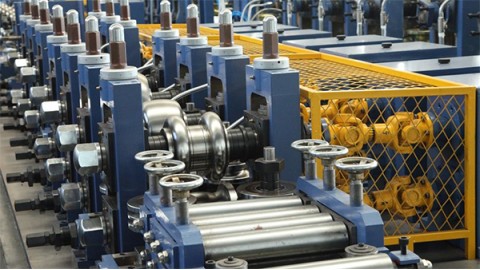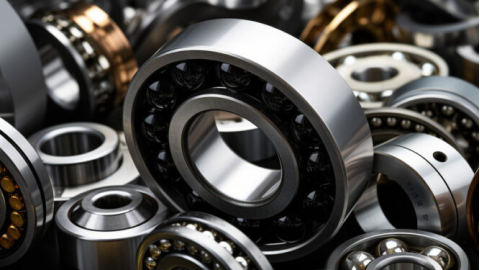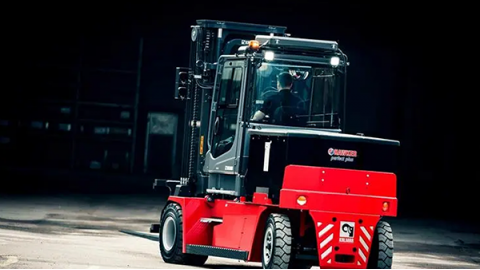Top 10 Industrial Robotics Manufacturers
Industrial robotics form the core of automated manufacturing. These are programmable, multifunctional mechanical arms or mobile vehicles. They perform tasks like welding, assembly, packaging, and material handling. These systems revolutionize industries from automotive to electronics. They boost efficiency, precision, and safety. The global market continues to grow from its 2023 value. This growth is driven by supply chain optimization and rising labor costs. This article explores the top ten manufacturers. It focuses on innovation, market share, and industry impact. It excludes certain brands to highlight global leaders. Key robot components include controllers, actuators, sensors, and end-effectors. Understanding these is vital to see manufacturer differences.

How We Choose the Top Manufacturers
We select top manufacturers using specific metrics. These include annual revenue from public financial reports. We use global market share data from the International Federation of Robotics (IFR). Product innovation is measured by patents and new releases. We look at the breadth of industry applications like automotive or electronics. Service and support networks include training and maintenance. Sustainability practices like energy efficiency also matter. For example, companies with revenue over $4 billion get priority. Innovation includes AI integration or collaborative robot (cobot) advances. We exclude brands with reputation issues or limited geographic reach.
Fanuc (Japan)
Fanuc is a giant in industrial robotics. It is known for high reliability and a wide product range. Examples include the ARC Mate welding robot and the M-2000iA heavy payload robot. The company follows a zero-downtime manufacturing philosophy. Its predictive maintenance reduces machine stoppages. Fanuc dominates the automotive sector. It provides assembly line solutions for Toyota and General Motors. Its iRVision system allows robots to adaptively handle parts. The global service network offers 24/7 support in over 100 countries. Fanuc reported over $6 billion in revenue in 2022. Its collaborative robot series, like the CRX, focuses on safe human-robot interaction. The company also runs education programs with schools to train future engineers.
ABB (Switzerland/Sweden)
ABB is a pioneer in robotics automation. It offers diverse solutions like the IRB 6700 series for material handling. Its YuMi robot is a famous collaborative model. The OmniCore controller provides superior path accuracy and energy efficiency. ABB robots are essential in electronics. They enable precision assembly for smartphones. The company promotes sustainability. Its robots help reduce waste in packaging industries. IFR data often places ABB in the top three for market share. ABB expanded by acquiring ASTI Mobile Robotics. This enhanced its autonomous mobile robot (AMR) offerings. Services include remote monitoring and digital twin technology. Research focuses on AI-driven predictive maintenance.
KUKA (Germany)
KUKA is known for flexible and user-friendly robots. The KR QUANTEC series serves logistics. The LBR iiwa is a sensitive collaborative robot. KUKA provides high-precision drilling and riveting in aerospace. Its software platform, KUKA.Connect, enables cloud-based robot management. Chinese ownership by Midea Group influences its global strategy. The KR CYBERTECH series handles high-speed tasks. KUKA offers customized turnkey systems. It reports annual revenue around €3 billion. The company partners with universities to advance robotics research.
Yaskawa Electric (Japan)
Yaskawa Electric is another Japanese leader. Its Motoman robot series includes the GP series for general applications. The HC series features collaborative robots. Yaskawa's servo motor technology enhances robot motion and energy efficiency. Its robots are critical in semiconductor manufacturing. They are compatible with cleanroom environments. The company has a strong global presence with facilities in the Americas, Europe, and Asia. It integrates AI for quality inspection. The robotics division reported over $3 billion in revenue in 2022. Services include preventive maintenance packages. Industry-specific solutions include hygienic robots for food processing.
Other Leading Manufacturers
Several other companies complete the top ten list. DENSO (Japan) focuses on small assembly robots. Its VM series makes automotive interior parts. It ships over 80,000 units annually. Universal Robots (Denmark) revolutionized the cobot market. The UR10e model is known for ease of use and quick setup. It is popular with small and medium-sized enterprises. Kawasaki Heavy Industries (Japan) offers heavy payload robots. Its BX series serves construction and shipbuilding. Epson (Japan) is famous for its SCARA robots. The G series handles precise electronic assembly. Nachi-Fujikoshi (Japan) develops versatile robots. The MZ series performs welding and handling. Stäubli (Switzerland) delivers high-performance robots. The TX2 series works in medical and textile industries. Each company brings unique innovations and applications.
Industry Trends and Future Outlook
Key trends shape the future of industrial robotics. Collaborative robots (cobots) are growing fast. Their market share is expected to double by 2030. They enable safe human-robot collaboration. AI and machine learning let robots adapt and optimize tasks. Mobile robots (AMRs) are rising in warehouse automation. Amazon's Kiva system is a well-known example. Sustainability is a major focus. Manufacturers develop energy-efficient models and recycling programs. Customization is increasing. Companies offer modular designs for specific needs. Global challenges include supply chain disruptions and a skills gap. These factors affect adoption rates. The IFR predicts an annual growth rate over 10%. Emerging markets like India and Brazil will drive this expansion.




